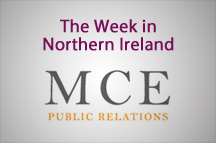 This piece was originally intended as a ‘lookahead’ for Northern Ireland, however 2017 has already delivered a searing political crisis that has plunged our institutions into uncertainty and means we face a premature Assembly election here less than a year after the last one.
This piece was originally intended as a ‘lookahead’ for Northern Ireland, however 2017 has already delivered a searing political crisis that has plunged our institutions into uncertainty and means we face a premature Assembly election here less than a year after the last one.
A scandal over the maladministration of a renewable heating incentive scheme (RHI), which exploded in the media in the weeks leading up to Christmas, forced an end to the post-election honeymoon enjoyed by the DUP and Sinn Féin. With First Minister Arlene Foster refusing calls to step aside (she was the Minister in charge during the roll out of the heating scheme), and also refusing calls for a public inquiry into the administration of the scheme, it was clear that that the Christmas break and season of goodwill would be a short lived one.
A later decision by DUP Minister Paul Givan to cut funding for an Irish language scheme, coupled with Foster’s continuing refusal to stand aside for an inquiry, culminated in a very ill and frail Martin McGuinness announcing his resignation on Monday as deputy First Minister. The move also meant that the position of First Minister was automatically vacated due to the mandatory coalition model on which our Executive is based. According to law, the parties have seven days to nominate successors to those positions or the Northern Ireland Secretary James Brokenshire must call an election.
 The Programme for Government consultation, which was lauded for its new outcomes-based approach only closed before Christmas and now looks like a fruitless exercise. The move towards an election also puts a number of much needed policies in jeopardy including a Bedroom Tax mitigation scheme, a plan to tackle huge waiting lists in the health service, a growing GP crisis and also the out-workings of an imminent report from the Historical Institutional Abuse Inquiry. Added to that are legislative plans for the reform and modernisation of our liquor licensing laws which would have provided a very welcome boost to our hospitality and tourism sector in Northern Ireland.
The Programme for Government consultation, which was lauded for its new outcomes-based approach only closed before Christmas and now looks like a fruitless exercise. The move towards an election also puts a number of much needed policies in jeopardy including a Bedroom Tax mitigation scheme, a plan to tackle huge waiting lists in the health service, a growing GP crisis and also the out-workings of an imminent report from the Historical Institutional Abuse Inquiry. Added to that are legislative plans for the reform and modernisation of our liquor licensing laws which would have provided a very welcome boost to our hospitality and tourism sector in Northern Ireland.
Various attempts have been made in recent days right across the political spectrum, to claw things back from the brink and avoid an early election. Indeed, with Brexit and article 50 negotiations looming, it is crucial that Northern Ireland has a voice at that table. Sinn Féin however have resisted calls to enter into talks with the DUP despite the subsequent restoration of the Irish language funding and the party remarkably announcing that it would agree to a public inquiry into RHI after all.
What makes this political crisis feel more fundamental is that McGuinness cites a failure by the DUP to ‘fully embrace’ the ‘equality, mutual respect and all-Ireland approaches’ enshrined in the Good Friday Agreement. This discord will not be an easy one to fix and the real worry for our region is that this political instability particularly reverberates in our business community and private sector, once again damaging the progress that has been made here in the past decade.
Come Monday, Brokenshire will be required to call an election if the posts of First and deputy First Minister are not filled. Until then, we live in hope.














